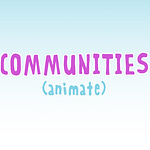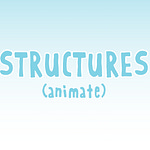Abbie: Hello and welcome to the CosmoParenting Podcast brought to you by the CMM Institute for Personal and Social Evolution. In this space, we invite you to see yourself as someone who is curious about and actively participating in creating your own meaning around parenting.
This is our ‘Communicate’ episode, in which the fourth episode of each month, we will wrap up our theme by offering some ideas for communicating with your children, and co-parents, or whoever else might be a part of your parenting to start having conversations about the things you're learning here. Let's begin.
*music*
Abbie: Today, I am joined again by Don Waisanen. Don is a father to three boys, as well as a professor at the Baruch College at City University of New York's Mark School of Public and International Affairs. He is also a consultant, author, and an improviser. Hi, Don. Welcome back.
Don: Hey, Abbie. Great to be back. Thanks for having me.
Abbie: Glad to have you here again. Today, we are talking about adaptation. So we're kind of exploring this paradox of how do we count on needing to be adaptable, needing to be flexible? What does it look like to, kind of, plan for that?
And I'll mention too that in our last episode, Stephanie offered us the strategy of ‘Read the Room’ and I built on that by adding the ‘NOREN Model.’ So both about being really present in our communication with each other and taking in information and then responding accordingly. So, with all that in mind, I'm really curious to know what would you want to share with us today about how people who are parenting could be communicating around adaptation?
Don: Sure. Thanks. I'll say, first of all, I'm glad you're talking there about planning and adaptation, both of those. Because I'll tell you what, I've been doing improv for 25 years now- and particularly improv performances. And I'll tell people, like, we have a weekly rehearsal with some of the groups I work with.
Abbie: Yeah.
Don: They go, how can you rehearse for that? There's nothing to rehearse. It's improv. It's all just completely freewheeling. It's like, no, actually, it's not.
We have certain structures underneath what we do that we improvise on. And one, which I shared last time, was ‘yes, and’- just that we're going to affirm the realities of others and try to build on them. That's one of them. There's there's many more.
But I think it's the same with parenting that we're ultimately trying to adapt, but we're not going in plan free. Right? So a lot of life, I think it plays out in very scripted ways. And one of the books I really like is Jeff Katzman and Dan O'Connor's Life Unscripted, where they talk a lot about this need to look at our scripts, to unscript, to re-script.
And I think it's the same when it comes to adaptation. I look at my six-year-old. And my plan for him is we're going to go to the park right now. We're going to go play pickleball. We did this yesterday. And all of a sudden, he's got a tear in his eye. And I just ignore that because I've got my plan. We're going to go to the park. And I don't stop and just adapt: What's going on? Oh, I was thinking my friend wasn't here today and I really wanted him to.
I need to be there at the moment, ready to just adapt to what's happening. So there's lots of adaptations that I think for us parents are really hard to make. One of the big ones right now is the internet and screens. And there's lots of public discussions around this. I just think a lot about how I was in a generation we grew up like- my growing up years we didn't have internet. And then my teenage years we did. And so I remember life before and life after, and I keep trying to remember: this has just been their world the entire time.
So how do I adapt to that? I can't fully do it. I can't coordinate and cohere completely with them. So I think part of adaptation is mystery, leaving yourself open to what's the mystery that they're presenting with?
Like, my kid plays Fortnite, and I have no idea half of what's going on. And like it's good for me to, like, walk in and I just make commentary as he's playing the game. I try to make funny commentary, and he seems to like it because I have no idea what's going on. But it's a great moment just to adapt and go: I don't know, like there's mystery here. I could rant and rail against this game that he plays, but he's there to sort of show me that you need to adapt to me, as well, dad. There needs to be structured spontaneity with what happens.
With the screens thing, I think part of adaptation, too, is just us as parents, we’ve come to realize, like, during the pandemic our kids really went on screens a lot. And so, what is it to adapt well, to plan and adapt well? We often will let our kids play screens on, say, a Saturday morning after a long week. But we'll say after lunch, you've got to go get out there. You've got to go play. And they'll say, oh, no, I'm so bored. I don't know what to do. But the kids are resilient and they figure it out.
I think I'm at a place where I'm like adaptation, constant adaptations are what this is really about. At the end of the day, we're not going to fully figure this parenting thing out ever. But going back and forth with our kids, seeing where they're at, making new plans, updating our plans versus a more fundamentalist approach to parenting, which is just like, here's the script. This is the way it is. This is the way the universe works. There's no room for adaptation. I think about that now as really the opposite of the parenting task. Adaptation is at the core.
Abbie: It is such a huge and interesting question to say, how…
[Abbie pauses when Don’s son opening the door to his office; Don waves him away.]
… How do parents who were raised in such a different context, parent children in such a different context? That's not the most eloquent way to say that question, but adaptability is a great response to that question because you don't know what it's like and we don't know what it's like. It is new for all of us to raise children in a world that is so saturated in technology. And, so, all we can do is adapt together.
Don: I think that's right. And you see this even going on with the debates out there about social media and screens and phones. And there's a really prescriptive way. I see a lot of folks going at that. Like the debates are really complicated. You know, when kids are on screen, sometimes they're with friends. They are actually socializing in a way that I never did growing up. But I can see…
Abbie: Yeah.
Don: …there is a lot of community socialization stuff going on through that. Now, do we want to stay there? No, we want them to get out and play and go do all the other stuff. But, it's just different.
And Abbie, I think we should recognize my six-year-old came in. We'll share this with listeners.
Abbie: Hahaha! Yes! Yes!
Don: My six year old came barging into the room. You're recording. Can I go play at my friend's house? And I'm waving my hand. It just struck me that this is exactly it. This is like what we're what we're talking about just happened. And that's what it's like: okay, how do I deal with this while I'm recording? Go play with your friends.
Abbie: And if you create a family culture that is inflexible and overly structured, then a moment like that would have a totally different tone. You know, if you are creating an environment that is about adaptability because you're modeling that in your parenting and you're trying to help your kids also be adaptable, then a little moment- oh, you came in when you weren't supposed to come in? We're flexible. We're adapting. No big deal. Move on.
You know, so it's like a structure, like a rigidity to being overly structured, I think creates such a tension…
Don: Yes.
Abbie: …in a family culture. I think kids internalize that for sure. And so the adaptability, and I really am, as we're talking, appreciating the choice of the word adaptability, because I do want people to think about flexibility and spontaneity, but the word really is adaptability.
And I'm thinking about like how species adapt and evolve over time. That is about adapting to the environment.
Don: Yes.
Abbie: Our environment is changing all the time. And so it really is a question of how are we adapting to the space that we're in, the community we're in, the culture we're in?
Don: Yeah, it's responsive.
Abbie: Yeah, right.
Don: Responsive and responsible adaptation, because I think maybe what we're arriving at here, by the way, I just want to put out there, like for listeners, please chime into this because this is an area I just constantly struggle with.
I think you're right. It's the fundamentalist version of it, of overly scripting. It's not responsive. At the same time, just complete nothing but improvisation and that kind of parenting where everything is permissible, like, that's not going to work either. So there's a kind of a middle space there of adaptation. Again, like structured spontaneity.
Abbie: Yeah, right, right. And it's taking me back to the question of CosmoParenting: What does it mean to parent? That's an individual question for everyone to answer. And so that really is a question of what's the balance for you? You need to find that balance for yourself.
And, so, I appreciate all that you've shared today, Don, and thanks for joining us again. We'll hear from you again in a future ‘Communicate’ episode. So I'll look forward to continuing the conversation there.
And to everyone listening, thank you for joining us too. Don't forget to check out www.cosmoactivities.com, where you can find all of our other resources in this series, which are available for free.
And I'd also love to invite you to comment on this podcast episode on the CosmoParenting Substack. Don just gave us a great call to action to be a part of this conversation with us. We don't pretend to have all the answers. We'd love to be in dialogue with you and be learning from each other in that way. So, we're so grateful to be on this journey with you. And we will look forward to joining you next week for a very special bonus episode, where we will spend some time thinking about the past three themes together- stories, patterns, and adaptation.
*music*










